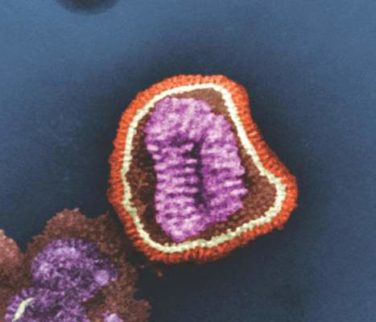FROM BMJ
The periconceptional use of some selective serotonin reuptake inhibitors (SSRIs) appears to have no impact on the development of birth defects, but some birth defects occur more frequently among infants of women treated with paroxetine or fluoxetine early in pregnancy, results from a Bayesian analysis demonstrated.
“Recent meta-analyses and systematic reviews combining data from more than 20 epidemiological studies have reached conflicting conclusions and this uncertainty influences perceptions of the safety of antidepressant use in pregnancy,” researchers led by Jennita Reefhuis, Ph.D., of the National Center on Birth Defects and Developmental Disabilities at the Centers for Disease Control and Prevention, Atlanta, wrote in the British Medical Journal on July 8.
“SSRIs are increasingly used by women of reproductive age and during pregnancy, but the inconsistent reports have limited opportunities for clinicians to carefully evaluate the risk compared with benefit of specific SSRIs for a given patient during pregnancy,” they said.
In an effort to evaluate the association between individual SSRIs and birth defects, the researchers used Bayesian methods to summarize independent findings identified in the literature and to update those findings using data from the U.S. National Birth Defects Prevention Study (NBDPS).
The analysis drew from 10 centers in the United States and included 17,952 mothers of infants with birth defects and 9,857 mothers of infants without birth defects, with estimated dates of delivery between 1997 and 2009. Exposures included the use of citalopram, escitalopram, fluoxetine, paroxetine, or sertraline in the month before through the third month of pregnancy (BMJ 2015;350:h3190 [doi:10.1136/bmj.h3190]).
The main outcome measure was the 14 categories of birth defects that, according to the medical literature, had associations with SSRIs: neural tube defects, anencephaly, all septal defects, ventricular septal defects, right ventricular outflow tract obstructions, cleft palate, cleft lip with or without cleft palate, esophageal atresia, anal atresia, hypospadias, any limb reduction defect, craniosynostosis, gastroschisis, and omphalocele.
The researchers found that sertraline was the most commonly used SSRI (reported use in early pregnancy was about 40%), but none of five previously reported birth defects associated with use of sertraline was confirmed. For nine previously reported associations between maternal SSRI use and birth defects in infants, the researchers found no association.
High posterior odds ratios were observed for five birth defects with paroxetine use: anencephaly (3.2); atrial septal defects (1.8); right ventricular outflow tract obstruction defects (2.4); gastroschisis (2.5); and omphalocele (3.5). Additionally, higher posterior odds ratios were observed for two defects with fluoxetine use: right ventricular outflow tract obstruction cardiac defects (2.0) and craniosynostosis (1.9).
“Although our analysis strongly supports the validity of the associations that were observed, the increase in the absolute risks, if the associations are causal, is small,” the researchers wrote.
They noted that the two strongest posterior odds ratios were seen for maternal paroxetine treatment and anencephaly or right ventricular outflow tract obstruction cardiac defects in the infant. If these associations are causal, the absolute risks in the children of women who are treated with paroxetine early in pregnancy would increase for anencephaly from 2 per 10,000 to 7 per 10,000. For right ventricular outflow tract obstruction cardiac defects, the absolute risk would increase from 10 per 10,000 to 24 per 10,000.
“The absolute risks for these birth defects are still low,” the researchers wrote.
The authors pointed out that their study confirms the need to assess the association between specific SSRIs and specific birth defects, rather than combining an entire drug class or a heterogeneous group of birth defects.
“Although SSRIs are similar pharmacologically, there are chemical differences, and if any of them do have teratogenic activity, it may be completely unrelated to the inhibition of serotonin receptors,” they wrote. ”SSRIs also differ pharmacokinetically, and this could account for differences in teratogenic activity, whether or not the mechanism involved inhibition of serotonin receptors.”
Data collection for the study was funded by the CDC. The authors reported having no financial disclosures.




